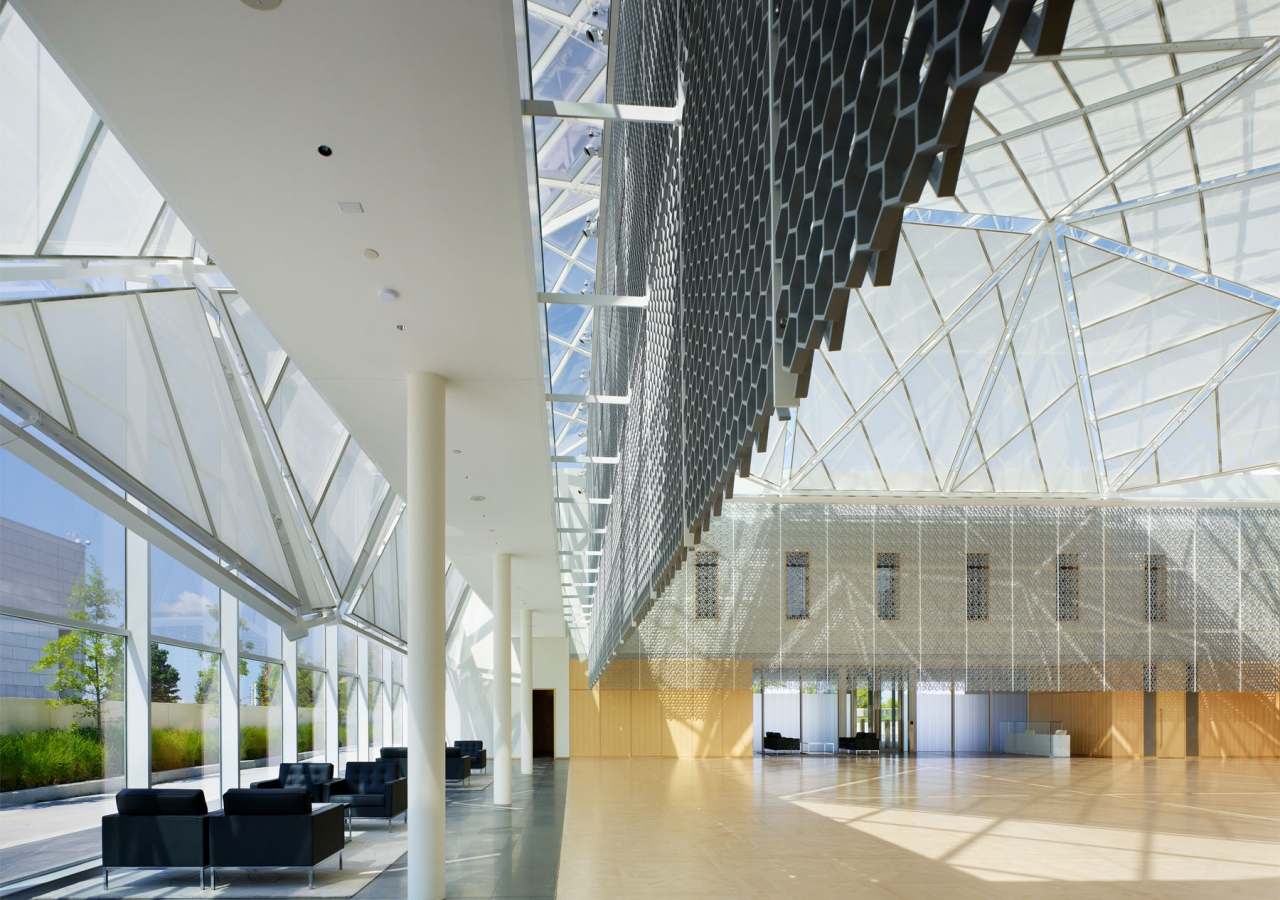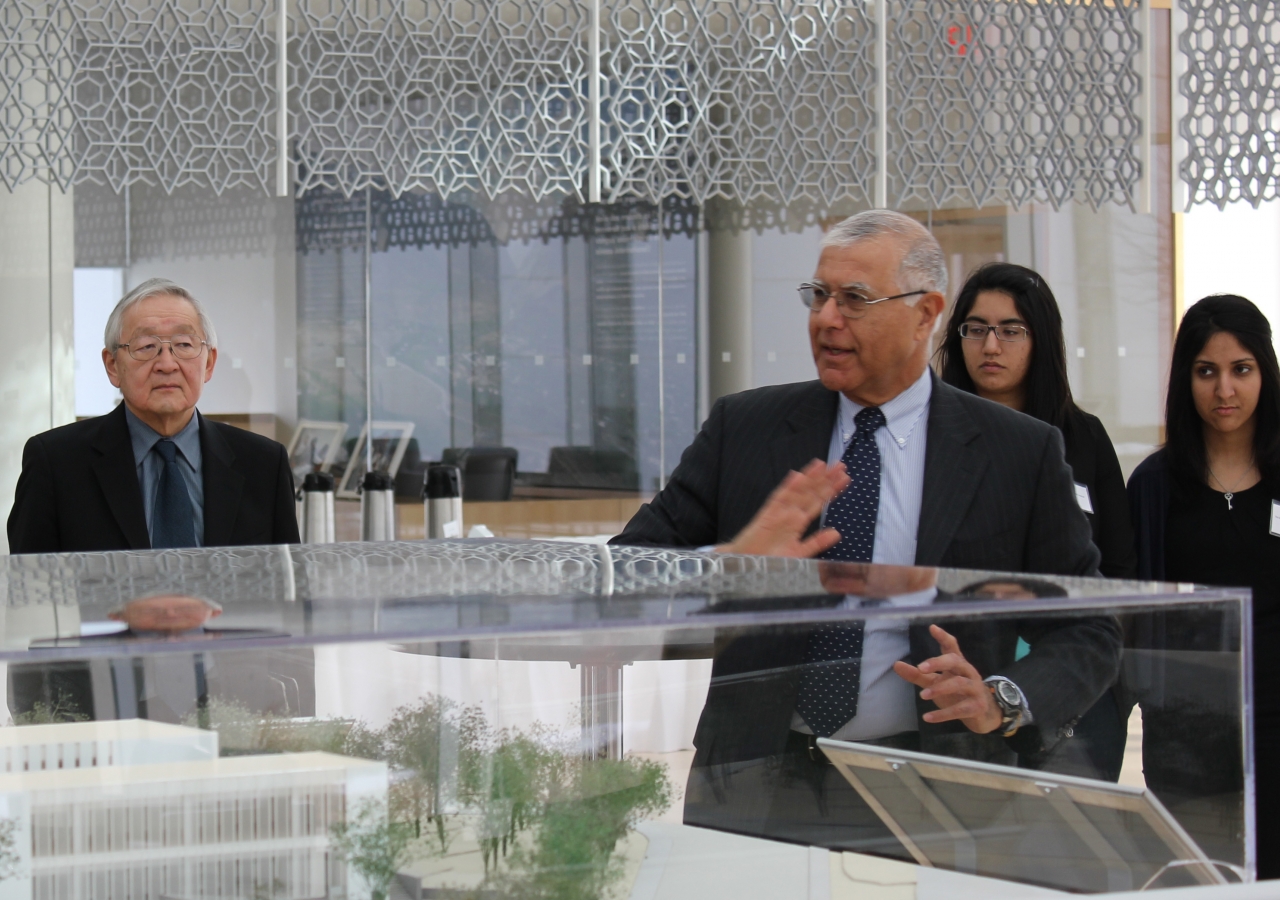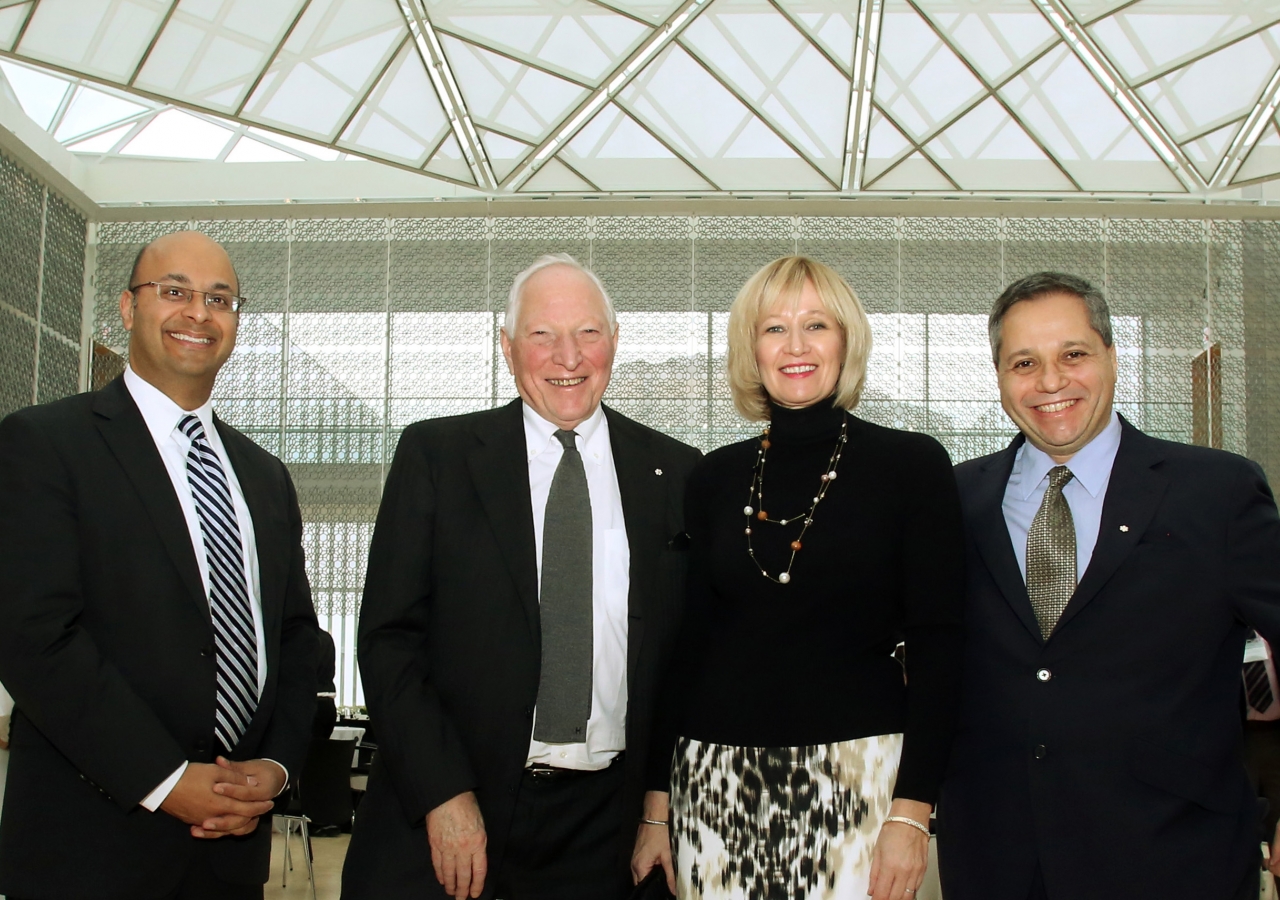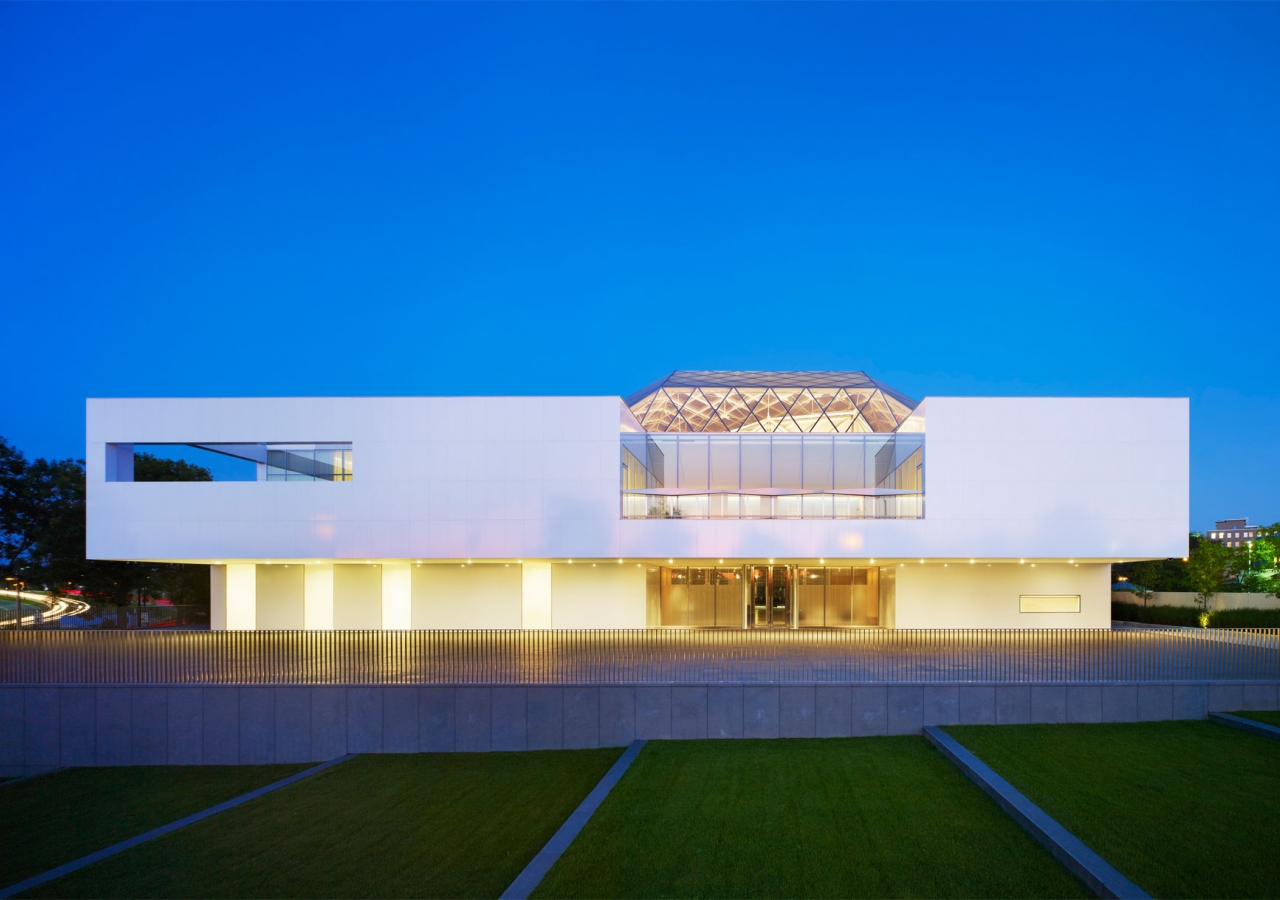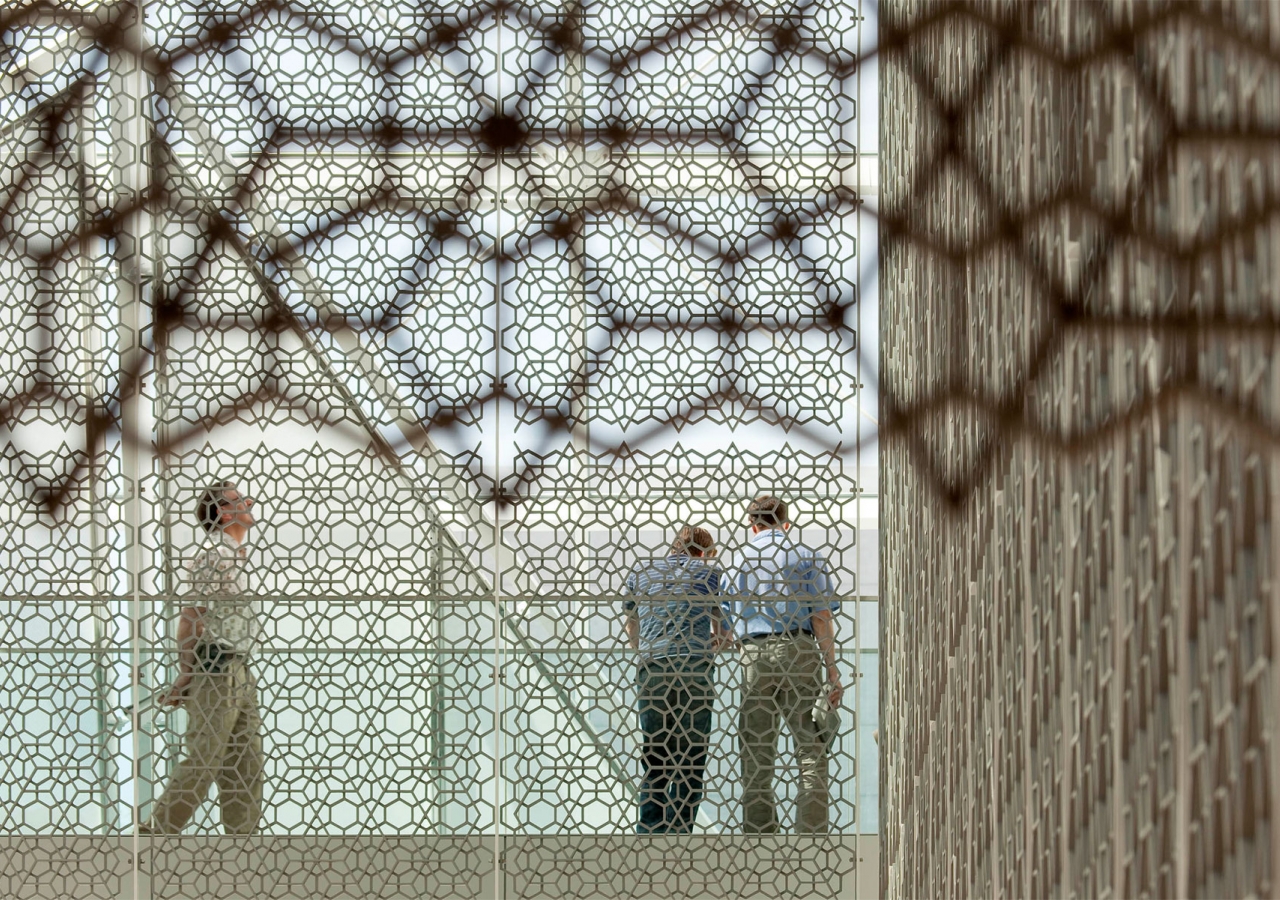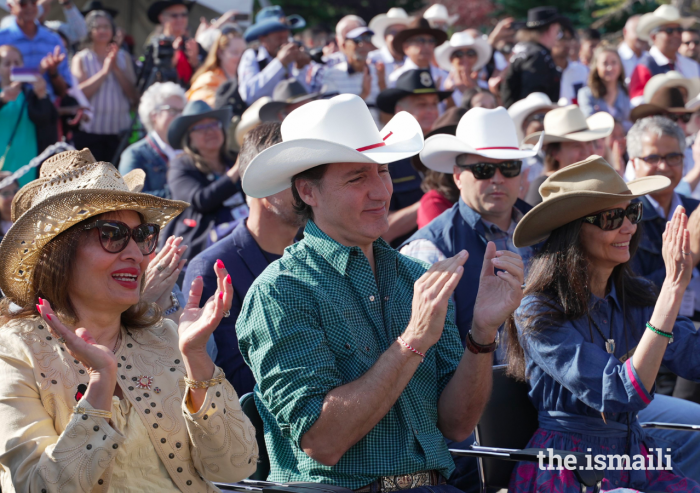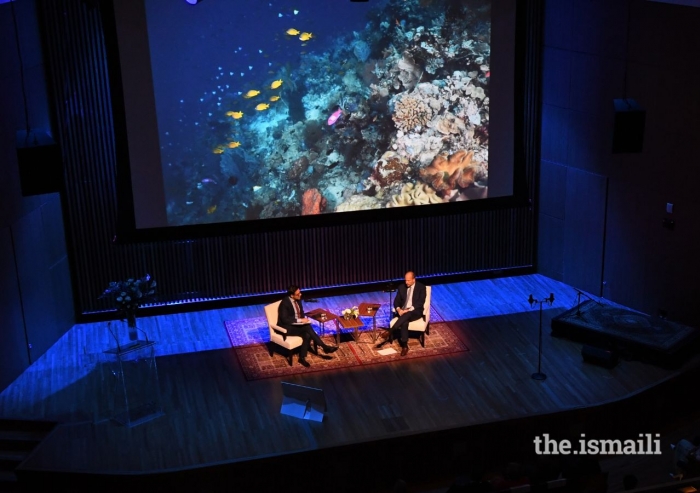The prestigious award, which recognises outstanding achievement in projects built by Canadian architects, was accepted by Diarmuid Nash and Ted Teshima of Moriyama & Teshima on behalf of the Delegation design partnership.
“Each of the buildings and spaces that we celebrate today is a lasting work of beauty and utility,” said His Excellency the Right Honourable David Johnston, Governor General of Canada, during the presentation ceremony held at his official Rideau Hall residence. “They are both concrete and symbolic, and each has uniquely succeeded in intriguing and inspiring those who inhabit them, even if only for a moment.”
The design of the Sussex Drive building – a collaboration between Maki and Associates and Moriyama & Teshima Architects – emerged from Mawlana Hazar Imam's belief that architecture is not simply about buildings, but must improve the quality of life of those that live in the built environment.
“Our leading architects know the power of built environments to bring us together and to raise our spirits – and, conversely, they know how poor design can isolate and diminish us,” said the Governor General.
In his remarks, Teshima paid tribute to the extraordinary contribution of Imara (the project company that managed the Delegation project on behalf of Mawlana Hazar Imam). He noted that in his 50 years as an architect, he had never worked with a client that had been so dedicated to a project.
Before the ceremony at Rideau Hall, the Delegation of the Ismaili Imamat hosted a reception and guided tours for the medal laureate teams and their guests, as well as members of the wider Canadian architectural community, representatives of the development and construction industries, government officials, media, and students. The gathering was an example of the types of events through which the Delegation continues to provide opportunities for collaboration, dialogue and quiet diplomacy.
In December, the Aga Khan Foundation Canada (AKFC) co-hosted a luncheon with Grand Challenges Canada for Laureen Harper, the wife of Canadian Prime Minister Stephen Harper, in her capacity as chair of the Saving Brains Initiative. Researchers funded by the Initiative – including two from the Aga Khan University – also held a meeting at the Delegation to exchange experiences and learning. The Saving Brains programme promotes the fulfillment of human capital potential by focusing on interventions that nurture and protect early brain development in the first 1 000 days of life.
Similarly, the Delegation building has played host to a series of seminars for development practitioners and policymakers on early human development. Organised by AKFC with support from the Canadian international Development Agency, the events have featured prominent speakers addressing topics ranging from the importance of nutrition to the scientific research that underpins economic and human development (EHD) interventions.
The Global Centre for Pluralism has also held events at the Delegation, including its second annual Pluralism Forum in December. Vasu Gounden, founder and Executive Director of the African Centre for the Constructive Resolution of Disputes in Durban, South Africa, spoke on Preventing pluralism breakdown: Lessons from African peace processes.
This month, during International Development Week, the Delegation will open its doors for two days to the public with a programme that highlights the role of arts and culture in improving quality of life for communities in the developing world.

